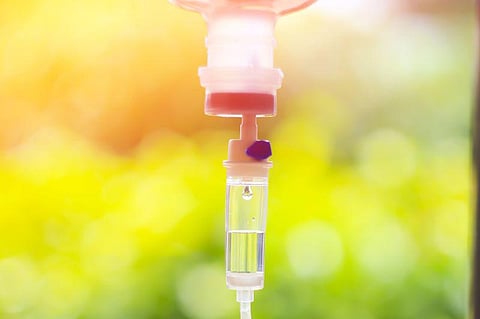MONDAY, Aug. 8, 2022 (HealthDay News) -- The U.S. Food and Drug Administration has approved Enhertu (am-trastuzumab-deruxtecan-nxki), an intravenous infusion treatment for patients with unresectable or metastatic human epidermal growth factor receptor 2 (HER2)-low breast cancer.
HER2-low is a new subclassification within HER2-negative, describing breast cancer that has some HER2 proteins on the cell surface, but not enough to be classified as HER2-positive. HER2-low patients are eligible for Enhertu if they have received a prior chemotherapy for metastatic disease or their cancer returned during adjuvant chemotherapy or within six months of completing chemotherapy.
The approval is based on results from the randomized DESTINY-Breast04 trial, in which 373 patients received Enhertu every three weeks and 184 received physician's choice of chemotherapy. Both progression-free survival and overall survival improved in patients with unresectable or metastatic HER2-low breast cancer receiving Enhertu. Nausea, fatigue, alopecia, vomiting, constipation, decreased appetite, musculoskeletal pain, and diarrhea were the most common adverse reactions.
"Today's approval highlights the FDA's commitment to be at the forefront of scientific advances, making targeted cancer treatment options available for more patients," Richard Pazdur, M.D., director of the FDA Oncology Center of Excellence, said in a statement. "Having therapies that are specially tailored to each patient's cancer subtype is a priority to ensure access to safe and innovative treatments."
Approval of Enhertu was granted to Daiichi Sankyo.
More Information


